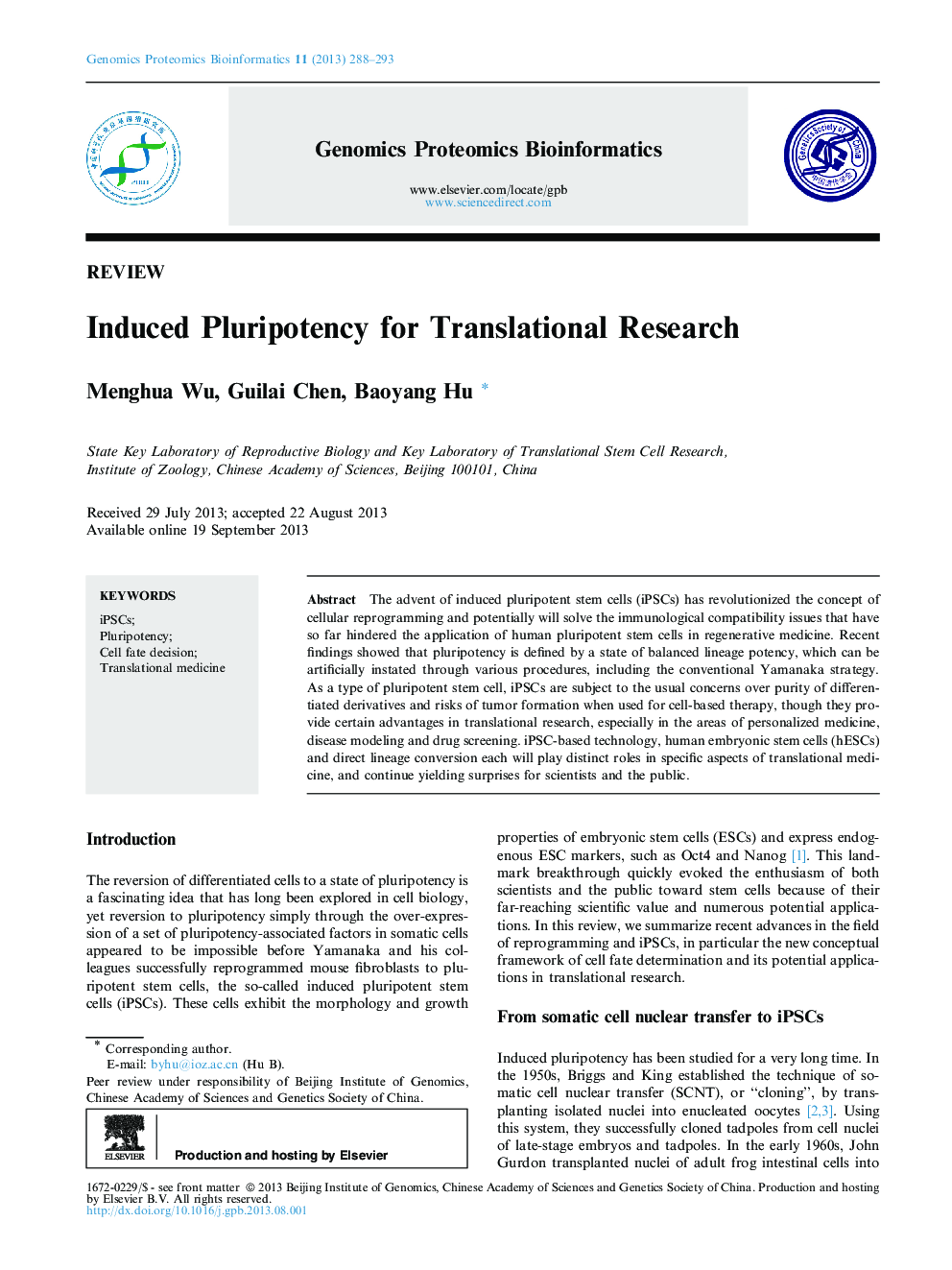| کد مقاله | کد نشریه | سال انتشار | مقاله انگلیسی | نسخه تمام متن |
|---|---|---|---|---|
| 2822533 | 1161294 | 2013 | 6 صفحه PDF | دانلود رایگان |

The advent of induced pluripotent stem cells (iPSCs) has revolutionized the concept of cellular reprogramming and potentially will solve the immunological compatibility issues that have so far hindered the application of human pluripotent stem cells in regenerative medicine. Recent findings showed that pluripotency is defined by a state of balanced lineage potency, which can be artificially instated through various procedures, including the conventional Yamanaka strategy. As a type of pluripotent stem cell, iPSCs are subject to the usual concerns over purity of differentiated derivatives and risks of tumor formation when used for cell-based therapy, though they provide certain advantages in translational research, especially in the areas of personalized medicine, disease modeling and drug screening. iPSC-based technology, human embryonic stem cells (hESCs) and direct lineage conversion each will play distinct roles in specific aspects of translational medicine, and continue yielding surprises for scientists and the public.
Journal: Genomics, Proteomics & Bioinformatics - Volume 11, Issue 5, October 2013, Pages 288–293